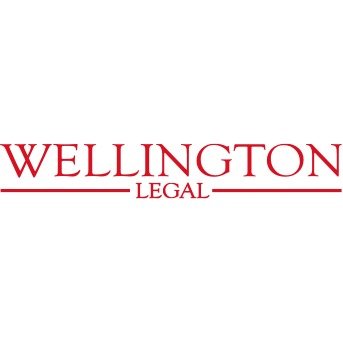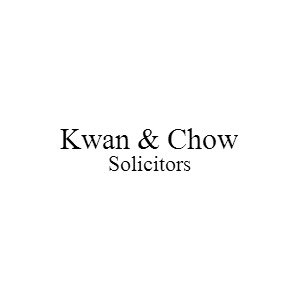Best Financial Services Regulation Lawyers in Central
Share your needs with us, get contacted by law firms.
Free. Takes 2 min.
List of the best lawyers in Central, Hong Kong
About Financial Services Regulation Law in Central, Hong Kong
Financial Services Regulation in Central, Hong Kong, serves as a fundamental framework to ensure the stability, transparency, and integrity of the financial markets. It aims to protect investors, maintain fair markets, and reduce systemic risk. The regulatory environment is shaped by both local laws and international standards, aligning with the role of Hong Kong as a leading financial hub. Key regulatory bodies include the Securities and Futures Commission (SFC), Hong Kong Monetary Authority (HKMA), and the Insurance Authority, each overseeing distinct areas of financial services such as securities, banking, and insurance.
Why You May Need a Lawyer
Engaging a lawyer in the field of Financial Services Regulation can be crucial in various situations. Common scenarios include navigating complex compliance requirements, establishing new financial service businesses, dealing with investigations or enforcement actions by regulatory bodies, and managing disputes related to financial transactions. Lawyers can provide expert guidance to ensure adherence to legal obligations and help mitigate risks associated with non-compliance.
Local Laws Overview
Central, Hong Kong, adheres to a robust regulatory framework governed primarily by several key legislations. These laws dictate the functioning of the financial services sector:
- Securities and Futures Ordinance (SFO): This ordinance establishes the legal structure concerning the trading of securities and futures, licensing of financial service providers, and enforcement against market misconduct.
- Banking Ordinance: It lays down the regulations for the power and responsibilities of the HKMA, the licensing of banks, and outlines prudential measures for the banking sector.
- Insurance Ordinance: This regulates the insurance industry in Hong Kong. It provides for the establishment of the Insurance Authority and sets out licensing requirements for insurers and intermediaries.
- Anti-Money Laundering and Counter-Terrorist Financing Ordinance (AMLO): AMLO specifies the mandatory requirements for all financial institutions to perform customer due diligence and maintain records to combat money laundering and terrorist financing.
Frequently Asked Questions
What is the Securities and Futures Commission (SFC)?
The SFC is an independent statutory body responsible for regulating the securities and futures markets in Hong Kong. It aims to protect investors and ensure orderly market activities.
How can a lawyer help with compliance issues?
A lawyer can assist in interpreting complex regulations, advising on best practices, and ensuring that your business operates in line with the latest legal requirements, thereby mitigating the risk of penalties and fines.
What is required to obtain a financial services license in Hong Kong?
Applicants must demonstrate financial integrity, competence, and a sound business plan. The SFC and HKMA review applications to ensure they meet criteria set by relevant laws and guidelines.
What should I do if I suspect insider trading?
It is crucial to report suspected insider trading to the SFC immediately. Legal counsel can provide guidance on how to proceed and protect your interests throughout any investigation.
How are disputes in the financial services sector resolved?
Disputes may be addressed through negotiation, mediation, arbitration, or litigation. The approach depends on the contractual terms and the nature of the dispute.
What are the penalties for regulatory breaches?
Penalties can include fines, suspension of licenses, legal action, and reputational damage. The severity of the penalty often depends on the nature and extent of the breach.
Can I operate a cryptocurrency exchange in Hong Kong?
Yes, but you must comply with the regulatory framework, including obtaining a license under the Anti-Money Laundering and Counter-Terrorist Financing Ordinance and observing guidelines from the SFC and HKMA.
What role does the Insurance Authority play?
The Insurance Authority regulates the insurance industry to protect policyholders and promote the financial stability of the insurance sector in Hong Kong.
What documentation is necessary for anti-money laundering compliance?
Mandatory documentation includes customer identification records, transaction logs, and internal policies for identification and reporting of suspicious activities.
Who oversees banking regulations in Hong Kong?
The Hong Kong Monetary Authority (HKMA) is responsible for overseeing and enforcing banking regulations, ensuring the safety and soundness of the banking system.
Additional Resources
For further assistance and information, consider reaching out to the following organizations:
- Securities and Futures Commission (SFC): For guidance on securities and futures regulatory matters.
- Hong Kong Monetary Authority (HKMA): For banking regulations and advice.
- Insurance Authority: For questions related to insurance regulation and compliance.
- The Law Society of Hong Kong: For finding legal professionals specializing in financial services regulation.
Next Steps
If you require legal assistance in the area of Financial Services Regulation, consider the following steps:
- Consult with a legal professional specializing in financial services to assess your situation.
- Gather all relevant documentation and information about your business or regulatory concern.
- Engage a lawyer experienced in navigating Hong Kong's financial laws to develop a strategic approach.
- Stay informed on the latest updates in financial regulations to maintain compliance and reduce risks.
Lawzana helps you find the best lawyers and law firms in Central through a curated and pre-screened list of qualified legal professionals. Our platform offers rankings and detailed profiles of attorneys and law firms, allowing you to compare based on practice areas, including Financial Services Regulation, experience, and client feedback.
Each profile includes a description of the firm's areas of practice, client reviews, team members and partners, year of establishment, spoken languages, office locations, contact information, social media presence, and any published articles or resources. Most firms on our platform speak English and are experienced in both local and international legal matters.
Get a quote from top-rated law firms in Central, Hong Kong — quickly, securely, and without unnecessary hassle.
Disclaimer:
The information provided on this page is for general informational purposes only and does not constitute legal advice. While we strive to ensure the accuracy and relevance of the content, legal information may change over time, and interpretations of the law can vary. You should always consult with a qualified legal professional for advice specific to your situation.
We disclaim all liability for actions taken or not taken based on the content of this page. If you believe any information is incorrect or outdated, please contact us, and we will review and update it where appropriate.














